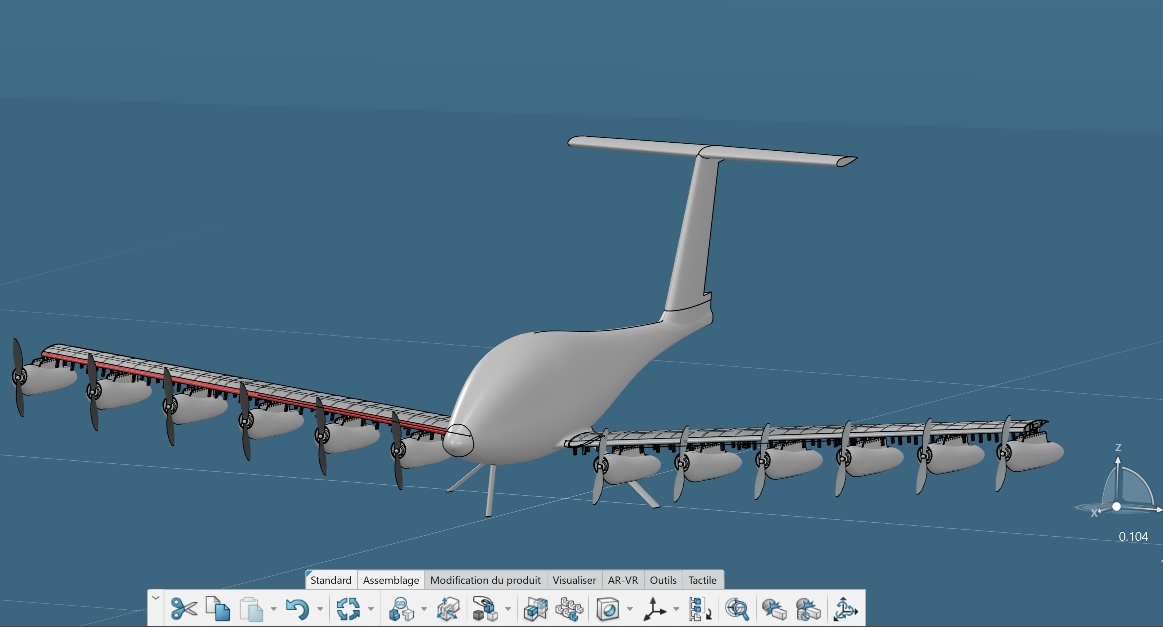Product Lifecycle Management Software enables aviation developer to harness Hydrogen fuel cell technology
French aerospace manufacturing company, Dassault Systèmes has been working with an aviation start-up business in France, Blue Spirit Aero, which is harnessing the power of hydrogen fuel cell technology to produce the “Dragonfly”, hydrogen-electric fuel-cell light aircraft. The companies are collaborating with the use of Dassault Systèmes’ 3DEXPERIENCE product lifecycle management (PLM) platform for both accelerating the development of Dragonfly and also for advancing the certification of accessible clean aviation. Blue Spirit Aero is also gaining the cost benefits of deploying its PLM software in a cloud environment so that it doesn’t have to invest in computer hardware on its premises.
The Dragonfly fuel-cell aircraft, which relies on Blue Spirit Aero’s proprietary electro-propulsive technology optimised for clean performance, is being developed with a view to certification and entry into service in 2026. In only a few months, Blue Spirit Aero has used Dassault Systèmes’ “Reinvent the Sky” industry system based on the 3DEXPERIENCE platform to complete the detailed 3D design of Dragonfly’s shapes, and test and validate its performance in terms of aerodynamics, structure and energy.
From the outset, the platform’s virtual environment on the cloud enabled the startup to structure its internal processes and streamline communication between experts across disciplines and locations for more efficient decision-making and full traceability.
According to Olivier Savin, CEO and founder of Blue Spirit Aero, the 3DEXPERIENCE platform is a technology which is widely used within the aviation industry and by using it to develop the Dragonfly aircraft all the way from its initial concept through to flight certification, not only is Blue Spirit Aero relying on one platform for all aspects of the product development, it is also giving credibility to each milestone that is achieved.
“We can show potential investors, partners, employees, suppliers, customers and regulators that viable hydrogen fuel cell solutions are being developed with the same software that has also been used for making some of the most technologically advanced commercial airliners possible,” he says.
Net Zero Ambitions
The global aviation industry is striving to achieve net-zero carbon emissions by 2050. Transforming technological breakthroughs into real products that fly requires new ways of working that combine the expertise of all those involved throughout the supply chain and enable efficient certification processes. Regulators are working to establish certification processes for products and models that are making use of the latest hydrogen fuel cell technologies. Blue Spirit Aero will be a catalyst in this by using the 3DEXPERIENCE platform to demonstrate the feasibility of these products.
According to David Ziegler, Vice President, Aerospace & Defence Industry at Dassault Systèmes, Blue Spirit Aero exemplifies a dynamic startup driving the hydrogen economy that shares the industry vision for more sustainable aviation.
“The ‘Reinvent the Sky’ programme and the scalability offered by the cloud allow it to deploy new capabilities as its project matures, optimise programme execution and reduce costs. These are all on the list of necessities for a startup that is paving the way toward the certification of a new category of vehicle,” concludes Ziegler.
- UK manufacturing steps up to COVID-19 crisis - April 2, 2020
- Clustering Innovation - March 12, 2020
- A Global Monitor - March 6, 2020

